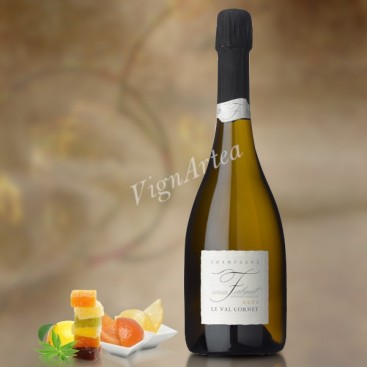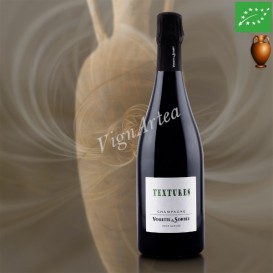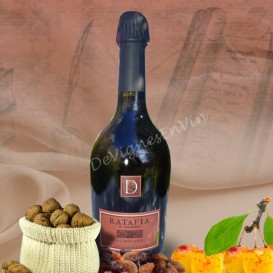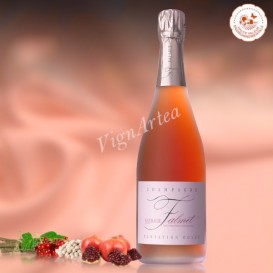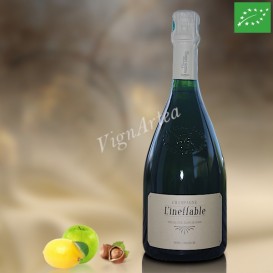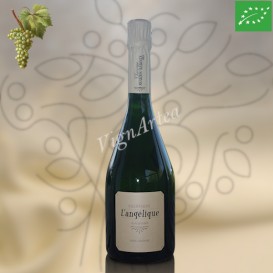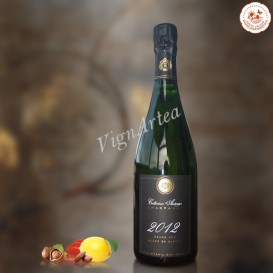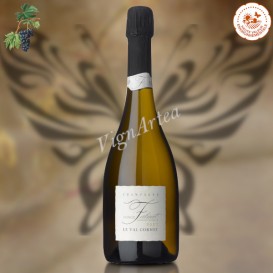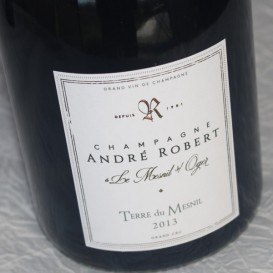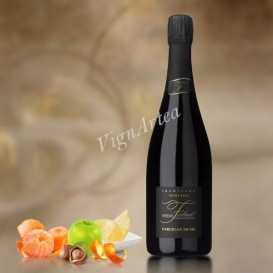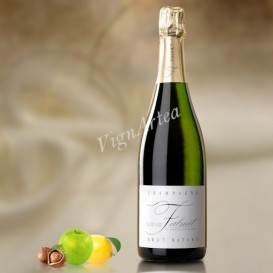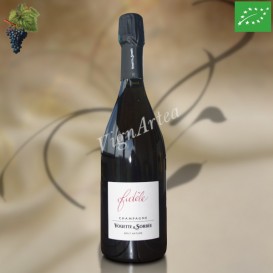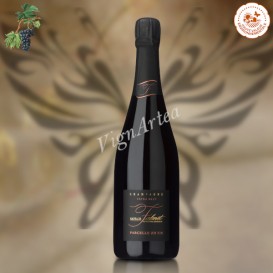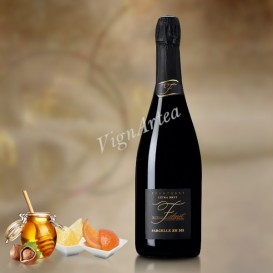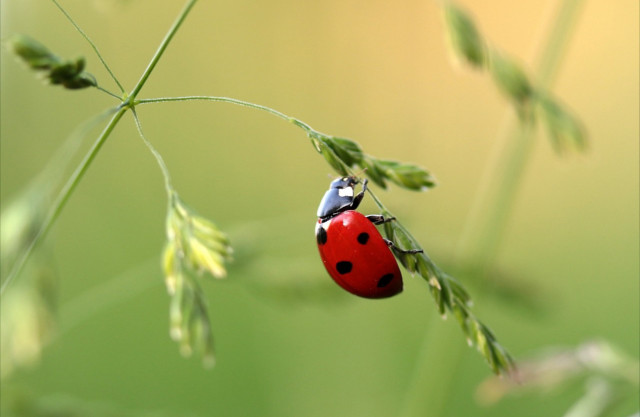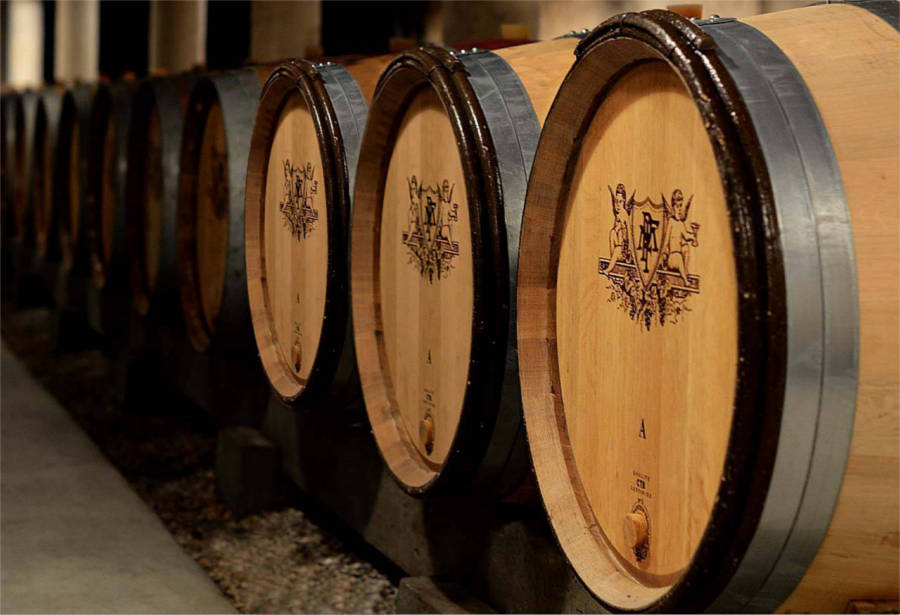LE VAL CORNET 2014 (Champagne Nathalie FALMET)
COTE DES BAR - AOP CHAMPAGNE - BLANC DE NOIRS CHAMPAGNE
Grape varieties: Pinot Noir (50%) - Pinot Meunier (50%)
Extra-Brut Single-Plot Sugar addition: 4 g/l
Winemaking in stainless steel tanks (50%) & 350-liter oak barrels (50%)
Concentrated - Complex - Fresh - Elegant
Nose: concentrated and complex. Aromas of candied citrus fruit, fruit jelly and verbena.
Palate: beautiful energy, fine bubble and a tasty juice with a lemony finish.
Tasting date: March 2021
OUR OPINION: for lovers of complex and tasty Champagnes.
The cuvée LE VAL CORNET is a blanc de noirs champagne made from a blend of equal quantities of Pinot Noir and Pinot Meunier grapes from a single year and a single plot, located in the Le Val Cornet place.
Although it is produced from a single year's harvest, this champagne is not considered a vintage champagne in the administrative sense of the term.
The winemaking of this cuvée was done in two different containers: in stainless steel vats (50%) and in 350-liter barrels (50%)
TERROIR
The terroir of the locality Le Val Cornet has a soil dating from the Kimmeridgian period (154 to 150 million years ago) and composed of three layers of marls separated by two layers of limestone, rich in marine fossils.
The sedimentation of this soil took place in a deep marine environment, when the sinking of the earth's crust caused a major marine transgression in the region.
The slopes of the Val Cornet vineyard are composed of clayey and calcareous marls, while the slopes offer soils resting on hard limestone platelets.
WINEGROWING & WINEMAKING
The Pinot Noir and Pinot Meunier vines that make up this cuvée were planted some fifty years ago. They are cultivated according to the principles of the Sustainable Winegrowing which means that the plants are only treated when necessary.
The grapes come from the same plot and are picked by hand. They are taken to the winery where a slight dose of sulphits are added to the harvest, and the grapes are pressed. Half of the juice is then transferred to thermo-regulated stainless steel vats and half to 350-litre barrels.
The winemaking process is carried out without the addition of any oenological products, with the exception of the sulphits addition on the harvest and the use of fermenting yeasts which are selected to be neutral and added to the must to ensure that the alcoholic fermentation proceeds smoothly.
The malolactic fermentation is systematically carried out; it brings roundness to the wine and avoids the use of SO2 to block it. As Nathalie Falmet's champagnes are also intended for having a long ageing period, the malolactic fermentation also guarantees the microbial stability of the champagne.
Once the fermentation is complete, the musts are blended and then racked with a cold tartaric stabilisation process.
The liqueur de tirage is added for the second fermentation and the bottles are placed on slats for an ageing period of about 62 months.
After disgorgement, sugar is added at 4 g/l, so it is an Extra-Brut champagne, even if the label simply indicates 'Brut'.
- Vintage: 2014
- Racking date: March 2015
- Disgorgement date: 06 May 2020
- Lats ageing: 62 months
- Sugar addition: 4 g/l
| Country | Champagne |
| Color | White |
| Orange wines | No |
| Clay amphorae wines | No |
| Blanc de Noirs | Yes |
| Type | Extra-Brut |
| Vintage | Harvest 2014 |
| Capacity | 75 cl |
| Variety | Pinot Noir (50%), Pinot Meunier (50%) |
| Alcohol rate | 12 % |
| Quality Designation | Champagne |
| Cellar Potential | More than 10 years. |
| Service advise | 10-12°C (50-54°F) |
| Culture Methods | Sustainable cultivation method |
| Total SO2 | 32 mg/l |
| Sugar addition | 4 g/l |
| Fining | No |
| Filtering | No |
| Comments | Winemaking in stainless steel vats (50%) and 350-litre oak barrels (50%). Malolactic fermentation done. Slats ageing for 62 months. |

